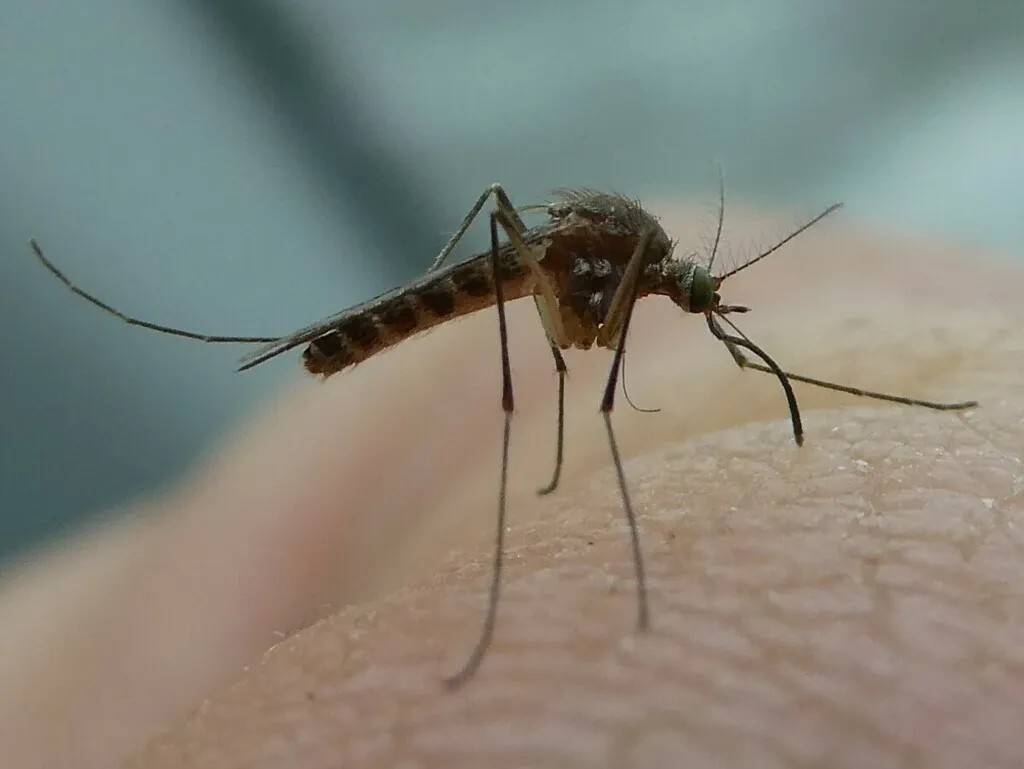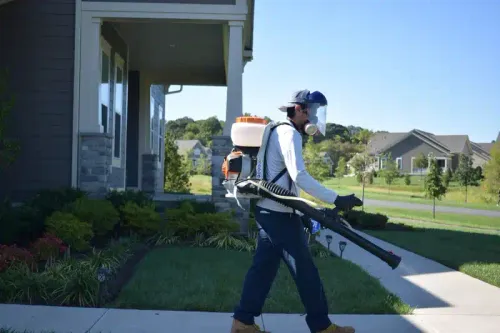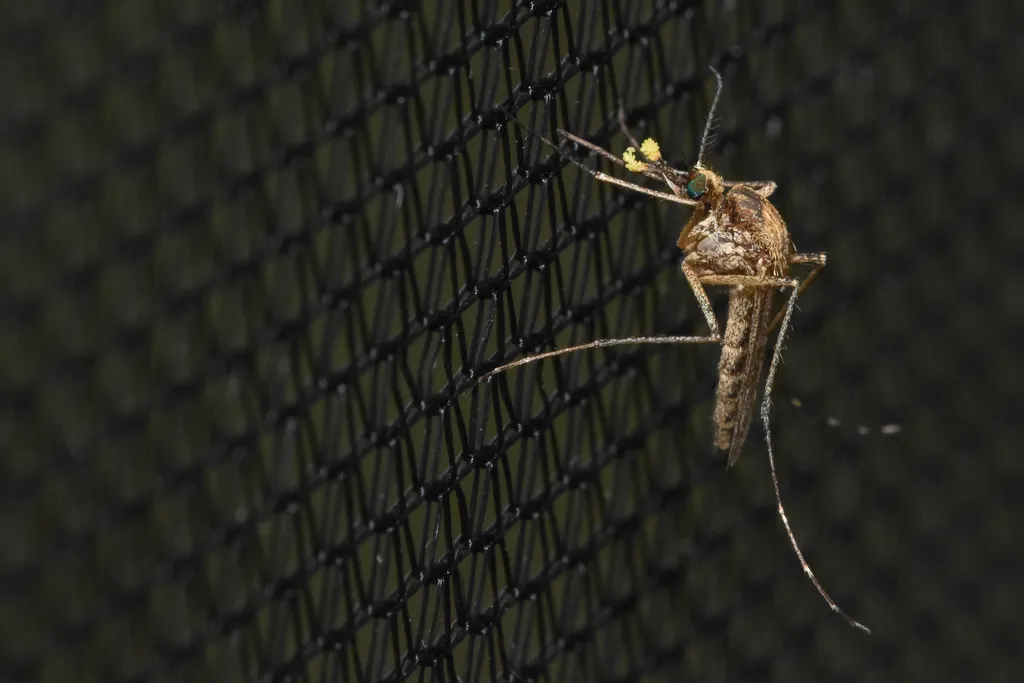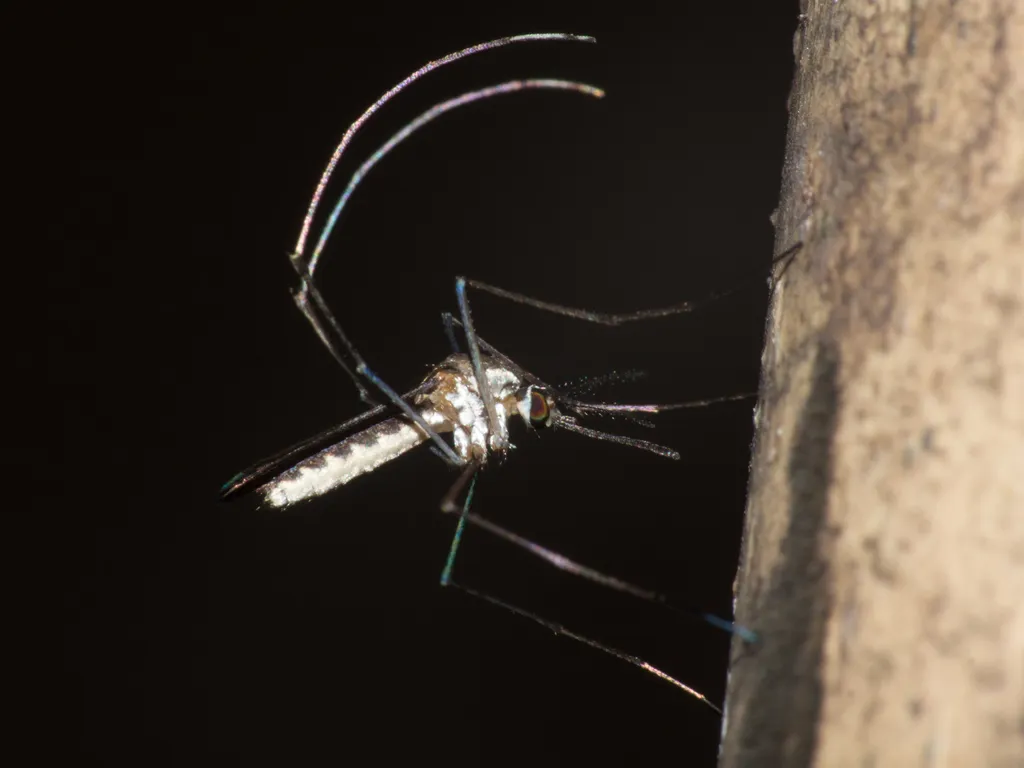Fort Washington Mosquito Control
Take back your backyard from Potomac River mosquitoes with research-backed treatments, reduced-risk products, and no binding contracts
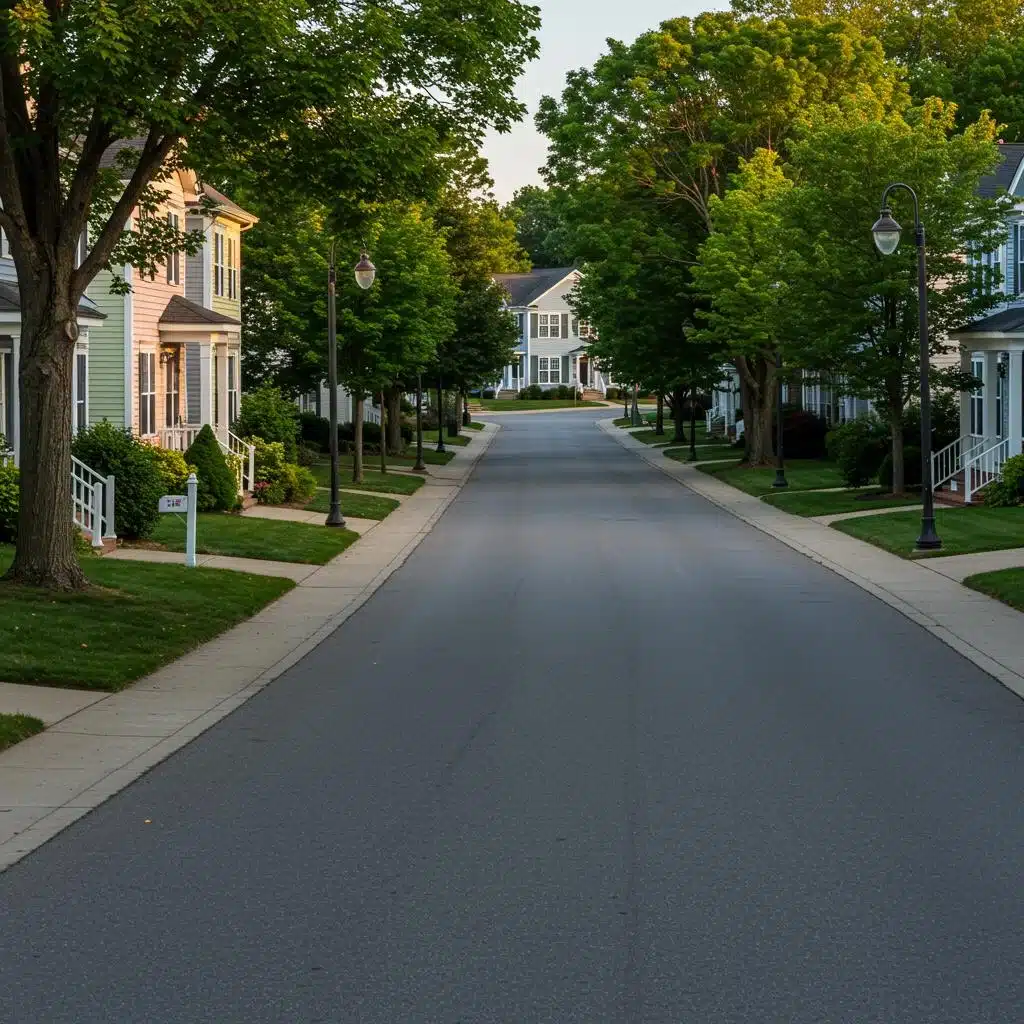





Family Owned
57 years of experience serving local homes with pets and kids.
Lower Risk Products
Our research team picked materials better for the planet & your home
No Contracts
We don't lock you in with paperwork. Stay because it works.
Mosquito Control Built for Fort Washington's Riverfront Neighborhoods
Fort Washington sits along the Potomac River with Broad Creek and Henson Creek winding through the community. That water, combined with mature tree canopy and humid Maryland summers, creates some of the worst mosquito pressure in Prince George's County. Whether you're in Tantallon, Fort Foote Village, Fort Washington Estates, or Lynnalan Acres, mosquitoes are keeping you off your deck from April through October.
Better Termite & Pest Control has served the DC Metro area since 1968. Our internal research team has eliminated 9 harsh chemicals from our programs, replacing them with reduced-risk products like Essentria and EcoVia. We understand that Fort Washington's creek corridors, tidal marshes, and 341-acre Fort Washington Park feed mosquito populations from every direction, and generic treatments can't keep up.
Every Fort Washington mosquito control plan includes unlimited callbacks at no extra cost. If mosquitoes come back between visits, so do we. No binding contracts. Call 703-683-2000 and talk directly with a licensed technician about your property.
Get a Free Quote
Choose the option that works best for you
Option 1: Call a Licensed Tech
Option 2: Submit Your Info to our Team
How Fort Washington Mosquito Control Works
We start with a thorough property inspection. Our licensed technicians map every breeding source and resting area on your lot. In Fort Washington, that means checking drainage near creek corridors, leaf litter under mature oaks and maples, standing water in bird baths, clogged gutters, forgotten planter saucers, and tarps covering outdoor equipment.
Next, we use backpack sprayers to apply a targeted mix that kills adult mosquitoes on contact and stops new ones from developing. We focus on shrub lines, deck undersides, fence perimeters, building eaves, and shaded vegetation where mosquitoes rest during the day. We don't spray your entire yard. We hit the spots where mosquitoes actually live.
Monthly visits during the active season build on each other to create layered protection. If activity spikes after a heavy storm or a humid stretch along the Potomac, our unlimited callback policy means we come back at no extra cost.
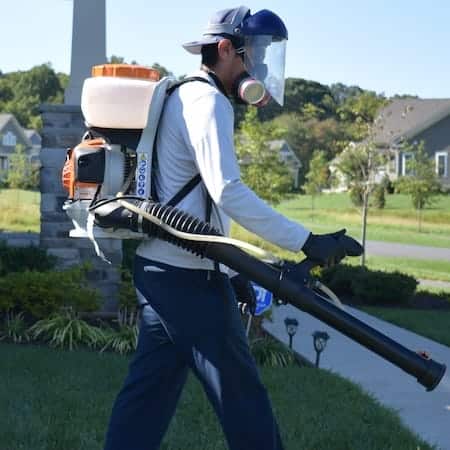
In2Care: Mosquito Control That Spreads Itself
Fort Washington's network of creeks, tidal inlets, and the Tantallon marina create mosquito breeding sites that stretch far beyond any single property. Traditional spray-only programs can't reach every source. In2Care turns mosquitoes into the delivery system.
We place specialized stations in shaded areas around your property. Egg-laying females are attracted to the water inside, where they pick up a larvicide and a biological control agent. Those mosquitoes then spread the treatment to other water sources around your property and nearby areas, reaching hidden spots in creek corridors and marsh edges that no technician could find.
Why In2Care Works Well in Fort Washington
- Mosquitoes spread the treatment to breeding sites in Broad Creek backwaters and Henson Creek wetlands beyond your property line
- Targets both adult mosquitoes and developing larvae in a single system
- Works continuously between technician visits with no repeated full-yard spraying
- Complements barrier sprays to provide dual-layer protection through the entire season
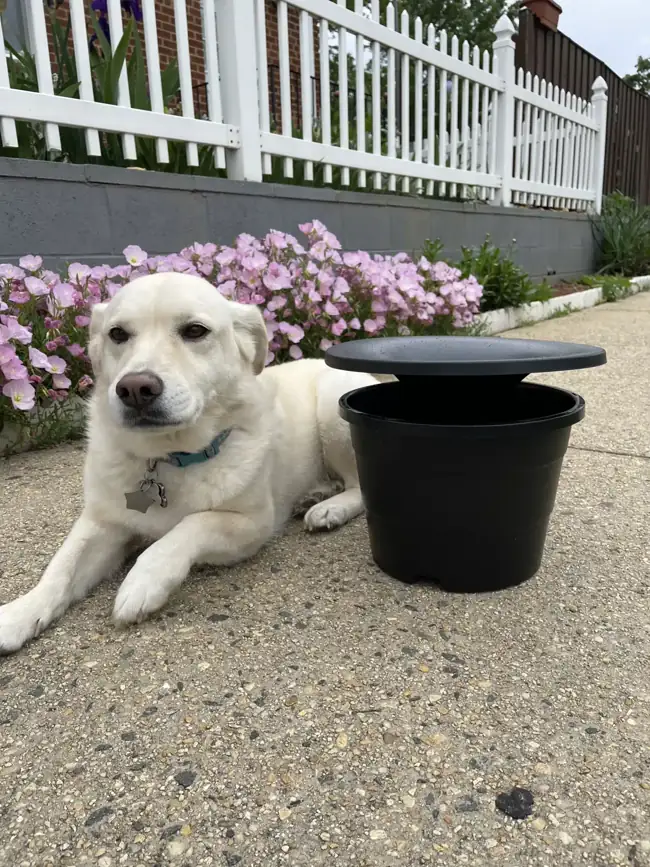
Fort Washington Tick Control for Wooded Properties
The 341-acre Fort Washington Park, Henson Creek Trail, and wooded buffers behind Tantallon, Fort Foote Village, and Fort Washington Forest put tick habitat right next to homes. Deer and mice travel along the Potomac corridor and creek greenbelts, carrying ticks into your backyard. Tick-borne diseases like Lyme disease are a real concern in Prince George's County.
Our tick program uses granular treatments in spring and fall to hit seasonal population surges. From April through October, we spray along the edge where your lawn meets the tree line. That border zone is where most tick encounters with people and pets happen.
Tick Control Strategy
- Spring and fall granular treatments during peak tick activity windows
- Perimeter spray along lawn-to-woods edges where tick exposure is highest
- All products vetted by our research team for effectiveness and reduced environmental impact
- Unlimited callbacks if you notice tick activity between scheduled visits
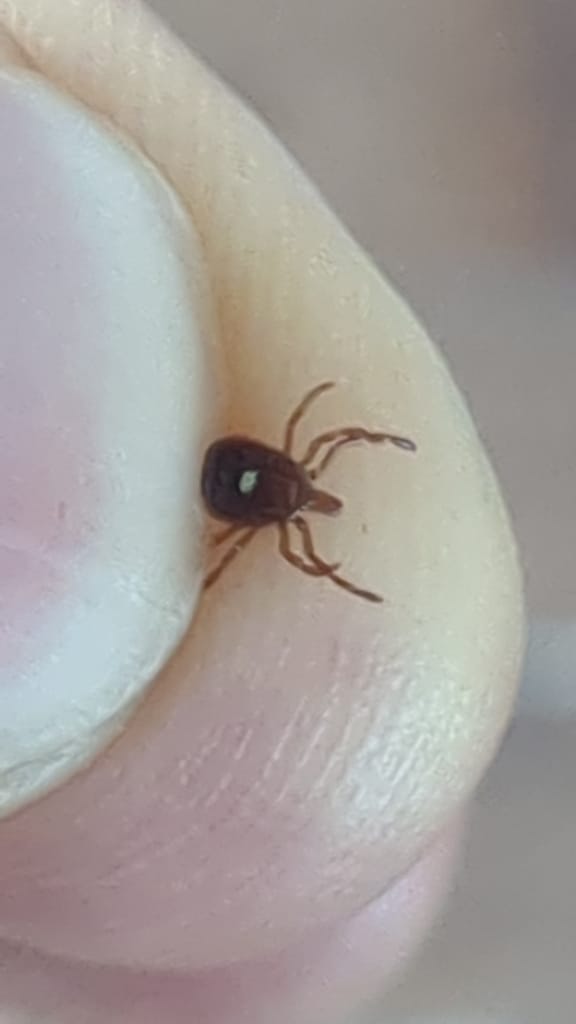
Why Fort Washington Has Heavy Mosquito Pressure
Fort Washington borders the Potomac River in southern Prince George's County. Broad Creek and Henson Creek flow through the community, creating tidal marshes, floodplains, and shaded stream buffers that are perfect mosquito habitat. The Tantallon marina and golf course irrigation add even more standing water to the equation.
Nearly all homes here are single-family brick colonials built between the 1960s and 1990s, sitting on lots with mature tree canopy. That shade is beautiful, but it also gives adult mosquitoes perfect resting spots during the day. Neighborhoods like Fort Washington Estates, Broadwater Estates, and Piscataway Hills sit directly along the river, where moisture and water access are constant.
Summer highs average in the upper 80s with about 45 inches of annual rainfall. The Asian tiger mosquito is the most aggressive local species, biting during the day in shaded, tree-lined yards. Mosquito season runs from late April through October, with peak activity in July and August when humidity stays above 70%.
Your Fort Washington Mosquito Control Schedule
March: We start with pre-season larvicide and granular tick treatments. We target early breeding sites before temperatures reach 50°F and mosquitoes start emerging. Getting ahead of the population is the smartest move you can make.
April through October: Monthly barrier sprays hit foliage, building perimeters, and shaded resting zones. Each visit builds on the last. Properties near Fort Washington Park, Broad Creek, or the Tantallon waterfront may need visits every 3 weeks during peak summer months.
November: We wrap up with a final granular tick treatment and winterization tips. Knocking down overwintering populations means fewer mosquitoes the following spring.
After Every Visit
We email you a detailed report with product logs and recommendations for your property. Our unlimited callback policy means we return between scheduled visits if mosquito activity increases. You never pay extra to get the results you're paying for.
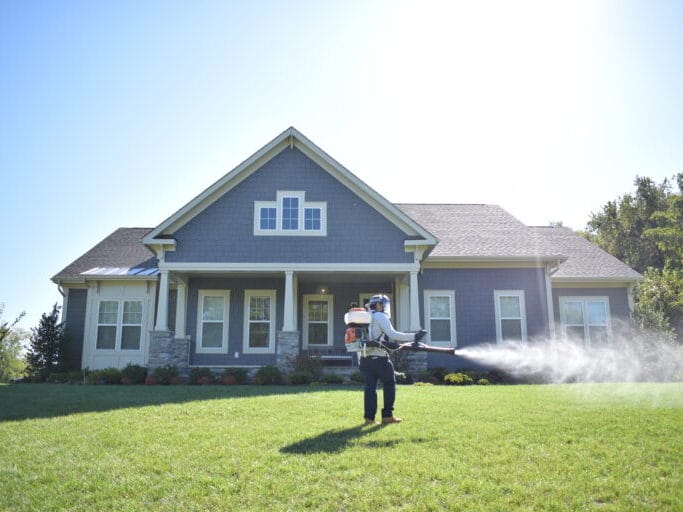
Bundle Mosquito Control with Year-Round Protection
Most Fort Washington homeowners deal with more than just mosquitoes. The same creeks and wooded edges that drive mosquito populations also bring ticks, ants, spiders, and rodents looking for shelter in your foundation, basement, and eaves. Older brick colonials in Tantallon and Fort Foote Village have different pest entry points than homes in newer sections of Aragona Village, but they all need protection.
Our SeasonGuard+ program bundles mosquito control, tick prevention, Sentricon termite monitoring, and general pest management into a single monthly plan starting at $95/month. You get 9 strategically timed visits per year, one consolidated bill, and unlimited callbacks across all covered pests.
What SeasonGuard+ Covers
- Monthly mosquito barrier sprays from April through October
- Spring and fall granular tick treatments along wooded property edges
- Sentricon termite baiting system with annual inspection
- Coverage for 35 common local pests including ants, spiders, crickets, and mice
- Unlimited callbacks for any covered pest between scheduled visits
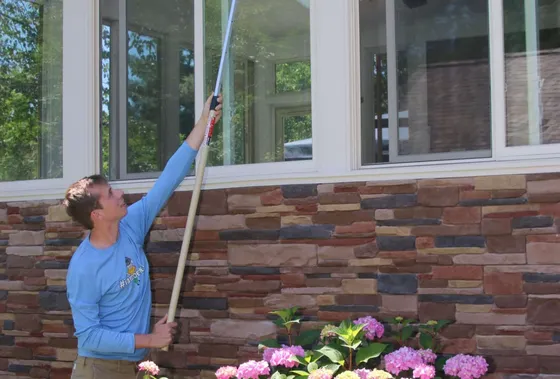
What Your Neighbors Are Saying
"I love Darren over at Better Termite. He is always so attentive and kind, and really goes, IMO, out of his way to do a fantastic job. And I am so happy that I had NO MOSQUITOES this summer in my backyard in spite of the fact that there is a drainage area right behind my house, and that is 100% because of Better Termites services."
"Outstanding Customer Service Experience with Mr. Hussam! From the start, he was highly professional, personable, and attentive to my needs. His dedication and loyalty to both his job and the business were evident in the way he handled every interaction with care and expertise."
"I've had nothing but great experiences for 3 years now. Their consistent, reliable service really stands out for me, and everyone is always kind and easy to talk to. Kamaal is fantastic—he really listens to my concerns and works with me to come up with the best plan for whatever pest issues I'm dealing with."
"We had a bad cockroach problem - we knew it was bad because of all the baby cockroaches we spotted. It took a while but Better Termite ultimately solved it and our house is cockroach free. Fortunately their customer service, Cindy in particular, was quick to help out and made it pain free."
"Better Termite has been keeping our house bug free for years with regular perimeter treatments. As a small, family owned business, they are able to personalize their approach based on your needs. It's clear that they prioritize customer service and communication."
"I love Darren over at Better Termite. He is always so attentive and kind, and really goes, IMO, out of his way to do a fantastic job. And I am so happy that I had NO MOSQUITOES this summer in my backyard in spite of the fact that there is a drainage area right behind my house, and that is 100% because of Better Termites services."
"Outstanding Customer Service Experience with Mr. Hussam! From the start, he was highly professional, personable, and attentive to my needs. His dedication and loyalty to both his job and the business were evident in the way he handled every interaction with care and expertise."
"I've had nothing but great experiences for 3 years now. Their consistent, reliable service really stands out for me, and everyone is always kind and easy to talk to. Kamaal is fantastic—he really listens to my concerns and works with me to come up with the best plan for whatever pest issues I'm dealing with."
"We had a bad cockroach problem - we knew it was bad because of all the baby cockroaches we spotted. It took a while but Better Termite ultimately solved it and our house is cockroach free. Fortunately their customer service, Cindy in particular, was quick to help out and made it pain free."
"Better Termite has been keeping our house bug free for years with regular perimeter treatments. As a small, family owned business, they are able to personalize their approach based on your needs. It's clear that they prioritize customer service and communication."
Serving Fort Washington & Surrounding Communities
Proudly serving Tantallon, Fort Foote Village, Fort Washington Estates, Lynnalan Acres, Broadwater Estates, and surrounding neighborhoods since 1968.
